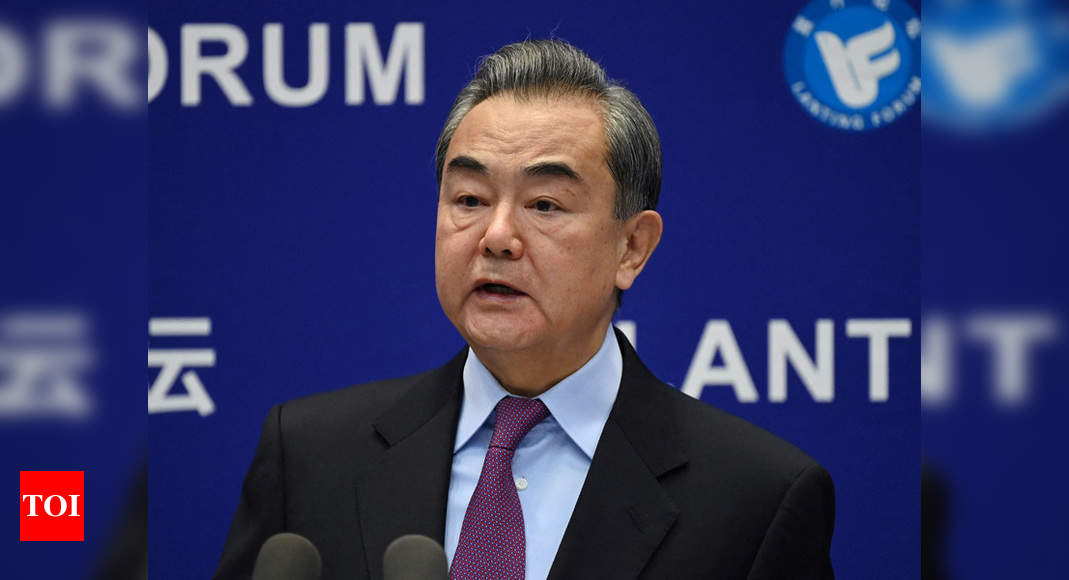Xinjiang ‘shining example’ of China’s rights progress: Minister – Times of India
[ad_1]
Rights groups believe at least one million Uighurs and other mostly Muslim minorities have been incarcerated in camps in the northwest Xinjiang region, where China is also accused of forcibly sterilising women and imposing a regime of forced labour.
After initially denying the camps existed, Beijing later defended them as vocational training centres aimed at reducing the appeal of Islamic extremism.
“Places inhabited by ethnic minorities, such as Xinjiang and Tibet, have stood out as shining examples of China’s human rights progress,” Wang said at a forum on US-China relations in Beijing.
Politicians in a range of countries have condemned China’s incarceration of minorities in Xinjiang.
The US State Department has said China’s actions in Xinjiang amount to genocide, while Canada is weighing a similar declaration.
A number of top diplomats also voiced concern over the situation during the opening of the Geneva-based UN Human Rights Council‘s main annual session Monday.
“The situation in Xinjiang is beyond the pale,” British Foreign Secretary Dominic Raab told the largely virtual meeting.
“The reported abuses, which include torture, forced labour and forced sterilisation of women, are extreme and they are extensive. They are taking place on an industrial scale.”
Speaking via video-link to the council later Monday, Wang slammed such statements as “inflammatory accusations… fabricated out of ignorance and prejudice.”
“They are simply malicious, and politically driven hype and couldn’t be further from the truth.”
Wang hammered home his message that locals in Xinjiang were “living a safe and happy life”.
He insisted that the region boasts more than 24,000 mosques — one for every 530 Muslims — belying assertions that religious freedoms there are being restricted.
“This basic fact shows that there has never been so-called genocide, forced labour or religious oppression in Xinjiang,” Wang said.
He also reiterated that China would welcome a visit to Xinjiang by UN rights chief Michelle Bachelet.
Beijing issued its invitation to Bachelet more than a year ago, but it remains unclear if it would be willing to agree to her demand for “unfettered access”, and no date has yet been set for the trip.
In his address to the rights council, China’s foreign minister also dismissed concerns over the situation in Hong Kong since the introduction of a controversial new national security law last year.
The law, he insisted, had closed “long existing legal loopholes in Hong Kong and facilitated a major turnaround from turbulence to law and order”.
Rights groups and activists say Tibetans have also suffered harsh restrictions on their religion and culture under Chinese rule – including the demolition of monasteries – which culminated in several self-immolation protests by Tibetans in recent years.
Journalists are banned from independent reporting in Tibet, where Beijing insists it has brought development to a previously backward region.
Wang meanwhile laid out China’s view that the approach to human rights must be permitted to differ between countries, “in light of national realities”.
Beijing often cites advances in life expectancy, economic growth and poverty eradication as evidence that rights are being safeguarded.
And it often balks at the emphasis at the rights council by Western countries in particular on the universality of political and civil freedoms.
“Human rights are not a monopoly by a small number of countries, (and should not) be used as a tool to pressure other countries and meddle in their internal affairs,” Wang told the council.
[ad_2]
Source link


Comments are closed.